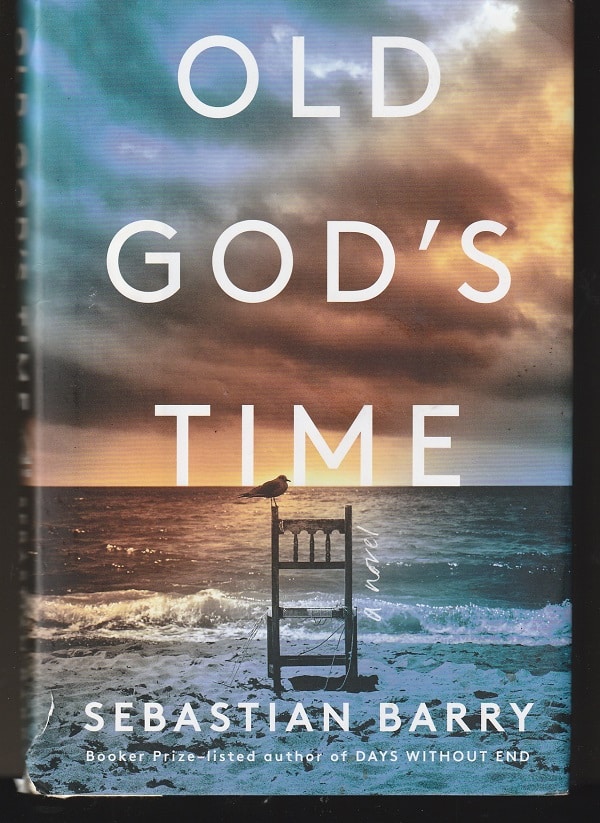
In Old God’s Time by Sebastian Barry, Tom Kettle tells the nightmare story of his life in waves of ever-increasing pain, violence and abuse.
It is a novel that features two specific cases of child abuse, two pedophile priests with countless victims, an IRA bombing in Dublin, a sniper’s bleakly efficient killing of 57 “enemies”(each notched on the rifle butt), a revenge murder, a ghastly suicide, a cop shot by an angry husband, a murder motivated by grief, a drug-induced fall causing head trauma and the radiator-burn of much of a body, and the punching of a wife, and the kidnapping of a young boy.
All of this is graphically recounted by Barry with great literary skill.
And, beyond what I’ve said, Old God’s Time is pretty much unreviewable.
That’s because it features twists and turns of plot in a narrative that swings back and forth in time. To mention any aspect of Tom Kettle’s connection to any of the pain, violence and abuse listed above would be to ruin Tom’s (and Barry’s) telling of his tale.
And, even more, it’s because the nightmare story that Tom tells leads up to an ending that sets the entire book into a radically altered context and perspective.
Those readers who get to the last page are confronted with an ending that, even with its shades of ambiguity, asserts that the book they thought they were reading isn’t the book they read.
If that seems like a gnomic comment, it’s because saying anything with more detail would ruin Tom’s (and Barry’s) story.
But it is acceptable, I think, to point out that, unlike most novels, Old God’s Time demands that those readers who get to the last page take a position about that ending. Not only what the ending means. But also how valid, how satisfactory, even how honorable that ending is.
In Old God’s Time, Barry takes the contract every fiction writer has with the reader and does something extreme to it. Any reader who gets to the last page can’t not respond to what Barry does.
Patrick T. Reardon
11.28.23
Written by : Patrick T. Reardon
For more than three decades Patrick T. Reardon was an urban affairs writer, a feature writer, a columnist, and an editor for the Chicago Tribune. In 2000 he was one of a team of 50 staff members who won a Pulitzer Prize for explanatory reporting. Now a freelance writer and poet, he has contributed chapters to several books and is the author of Faith Stripped to Its Essence. His website is https://patricktreardon.com/.
